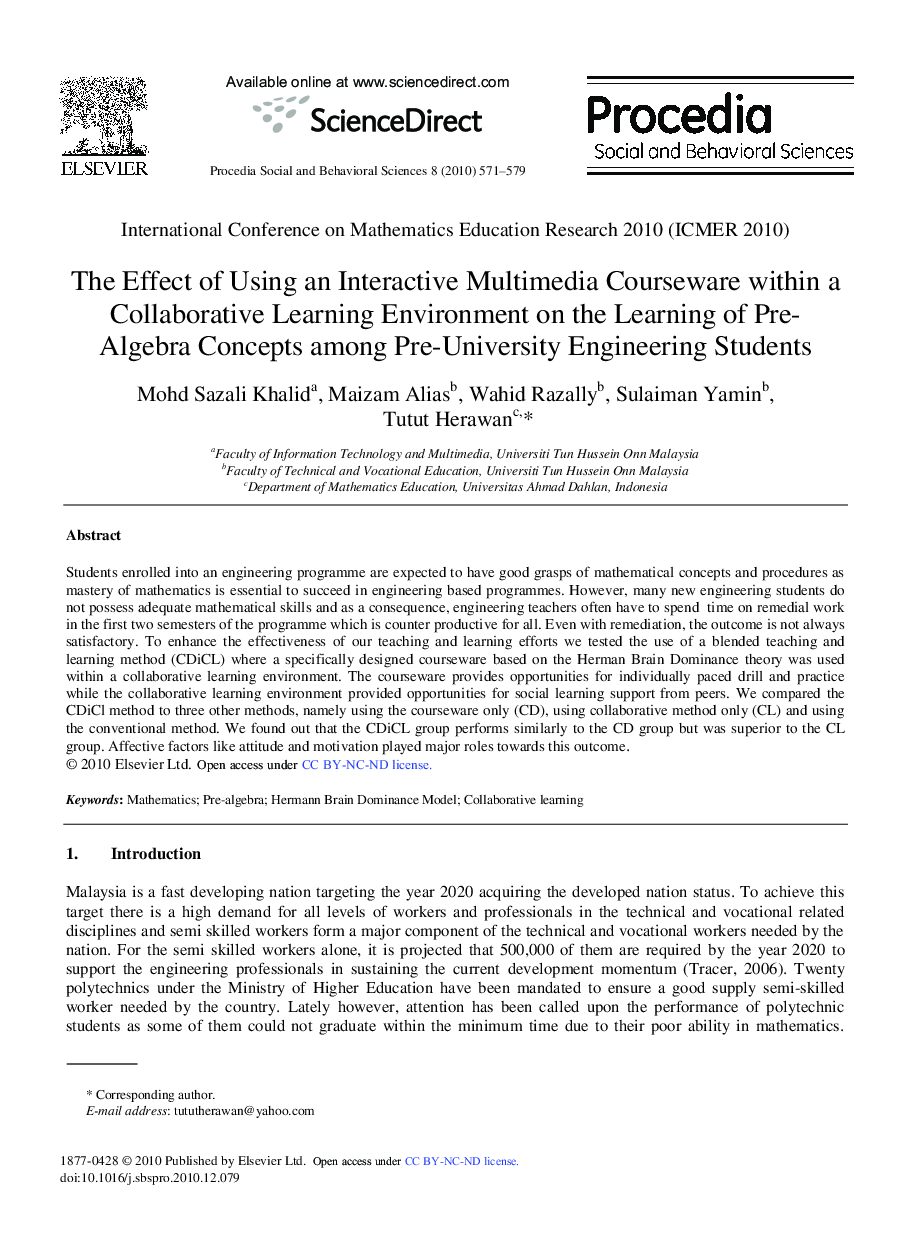| Article ID | Journal | Published Year | Pages | File Type |
|---|---|---|---|---|
| 1124802 | Procedia - Social and Behavioral Sciences | 2010 | 9 Pages |
Students enrolled into an engineering programme are expected to have good grasps of mathematical concepts and procedures as mastery of mathematics is essential to succeed in engineering based programmes. However, many new engineering students do not possess adequate mathematical skills and as a consequence, engineering teachers often have to spend time on remedial work in the first two semesters of the programme which is counter productive for all. Even with remediation, the outcome is not always satisfactory. To enhance the effectiveness of our teaching and learning efforts we tested the use of a blended teaching and learning method (CDiCL) where a specifically designed courseware based on the Herman Brain Dominance theory was used within a collaborative learning environment. The courseware provides opportunities for individually paced drill and practice while the collaborative learning environment provided opportunities for social learning support from peers. We compared the CDiCl method to three other methods, namely using the courseware only (CD), using collaborative method only (CL) and using the conventional method. We found out that the CDiCL group performs similarly to the CD group but was superior to the CL group. Affective factors like attitude and motivation played major roles towards this outcome.
